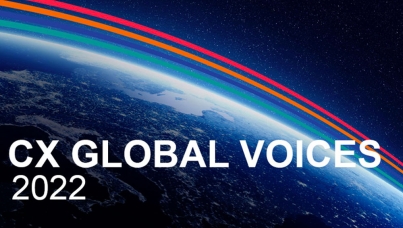Revolution@Work: Fears and Expectations
Ipsos is a partner with Revolution@Work, the international collaborative platform for future work practices. They organise one physical and several digital events throughout the year to share innovations and concrete solutions to reinvent working methods and spaces. The big physical event happened today at La Defense where Ipsos presented an exclusive study on employees’ fears and expectations regarding the changes in the workplace. Are companies well prepared to face the transformations? What are the opportunities and fears of the employees? Will the work experience be more or less fulfilling in 10 years?...
Finding #1 is most employees are convinced a workplace revolution is coming up
- Over three in four respondents expect the ongoing changes in the workplace to have a significant impact
- 80% think we will work differently in 10 years’ time
- 61% believe having multiple jobs simultaneously will become the standard
Results above show employees don’t anticipate minor tech-driven adjustments. They foresee massive disruption impacting most sectors in all countries. In their opinion, the gig economy is about to turn into the new normal - with tremendous consequences.
Finding #2 relates to the mixed reactions to this new world of work
Respondents were invited to select in a long list both the positive and negative changes most likely to occur in the coming 10 years. Flexibility appears to be the key word here.
- On the positive side, employees expect more flexible working hours and work locations, contributing to a better work/life balance
- On the negative side, close to 40% selected the lack of job security
Results are quite consistent across geographies, sectors, age groups and positions in this regard.
Finding #3 is automation tends to worry employees
- Artificial intelligence at work is perceived as an “opportunity for employees” by only 15% of them
- 39% declare AI is “an expected evolution, neither positive nor negative”
- It is a “threat to most employees” for 35% of respondents
- The risk of dehumanised relationships was one of the top themes in the respondents’ comments in all countries
The rise of AI generates additional concerns about job security, especially among employees in customer service and production-related positions.
Finding #4 is the overall work experience won’t become more fulfilling for everyone
- Close to 40% expect the work experience to be equally fulfilling in the future, but significant differences are registered in this regard
- Senior managers are 3 times more positive than blue collars on this topic
- Respondents under 25 are 3 times more positive than 50+ respondents as well
The chart below shows improvement / deterioration ratios are highly correlated to roles. Senior managers and managers are the only ones who are clearly convinced their work experience will either remain the same or improve in the coming 10 years.
Finding #5 is employees don’t find the pace of change too fast
- Only a small proportion find the pace at which companies are adjusting in their country too fast (13% on average)
- The proportion of employees who find the pace too slow is three times larger
- Overall, 38% say companies are adjusting at the “right pace”
The U.S. are the only country where a majority of respondents find companies well prepared. Being the home of GAFAM probably contributes to this favourable assessment from employees. European countries, especially France, face extra challenges to reassure their workforce and convince them on-going transformations will have a positive impact.



